Animal recognition Extra Challenge Worksheets for Ages 4-8
8 filtered results
-
From - To
Explore our "Animal Recognition Extra Challenge Worksheets for Ages 4-8," designed to enhance young learners' ability to identify and understand various animals. These engaging worksheets feature exciting activities that cultivate observation skills and critical thinking, making learning both fun and educational. Perfect for enhancing preschool and early grade curriculum, each worksheet encourages children to match animals with their habitats, complete puzzles, and expand their vocabulary through interactive exercises. Ideal for teachers and parents looking to provide extra support, these worksheets not only foster a love for learning but also encourage curiosity about the animal kingdom, setting a strong foundation for future exploration.
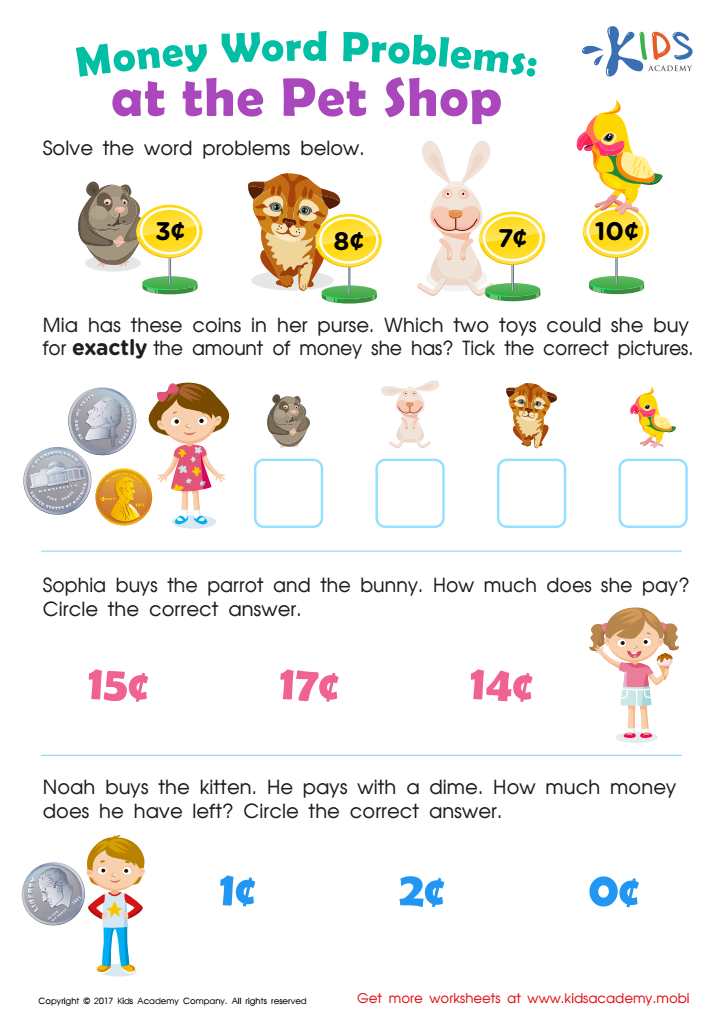

Pet Shop Worksheet
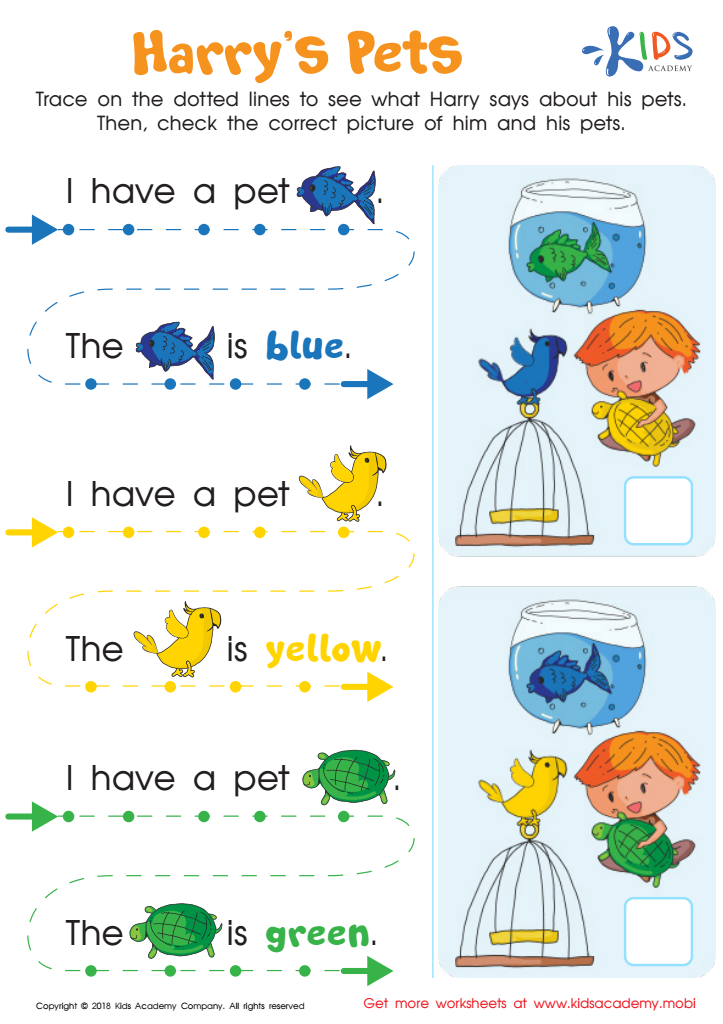

Read from Left to Right: Harry's Pets Worksheet
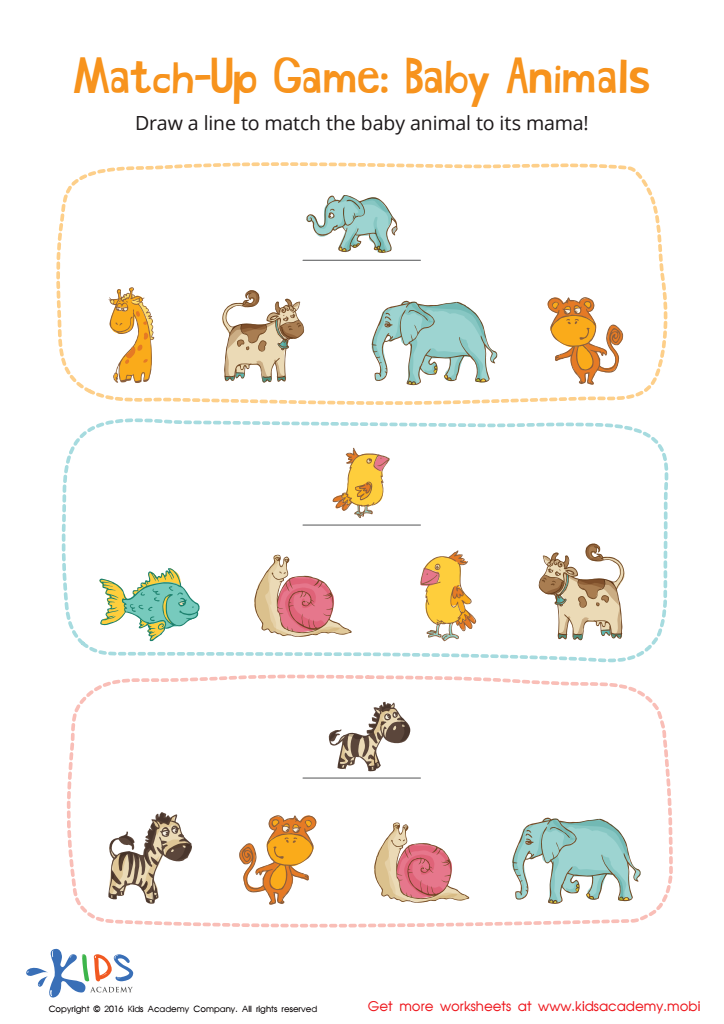

Baby Animals Match-Up Worksheet
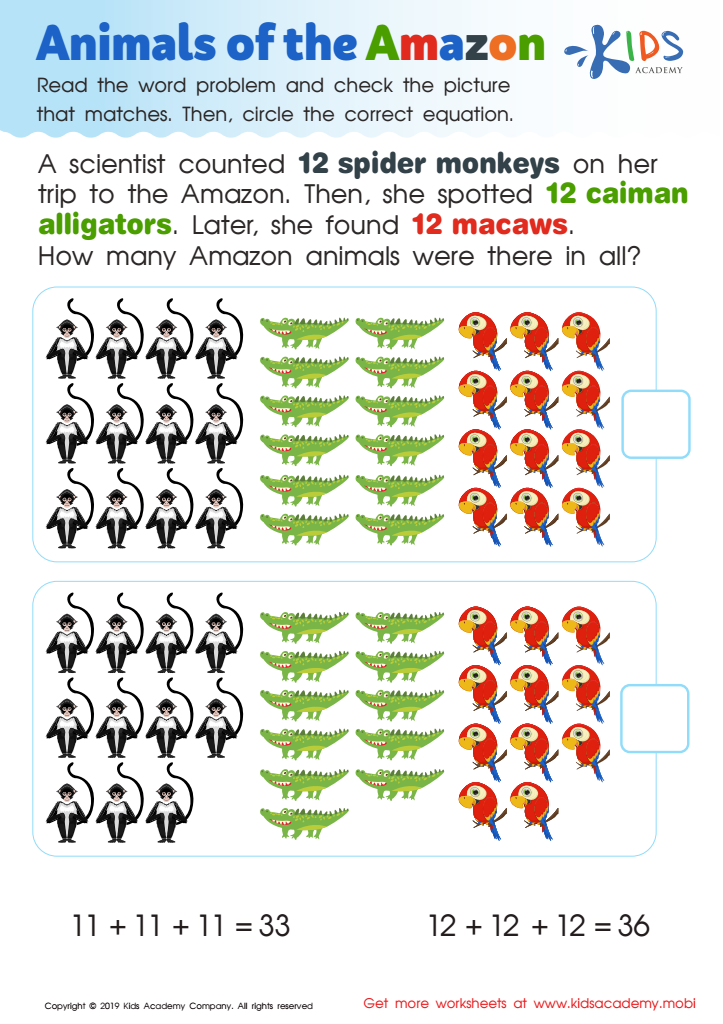

Animals of Amazon Worksheet
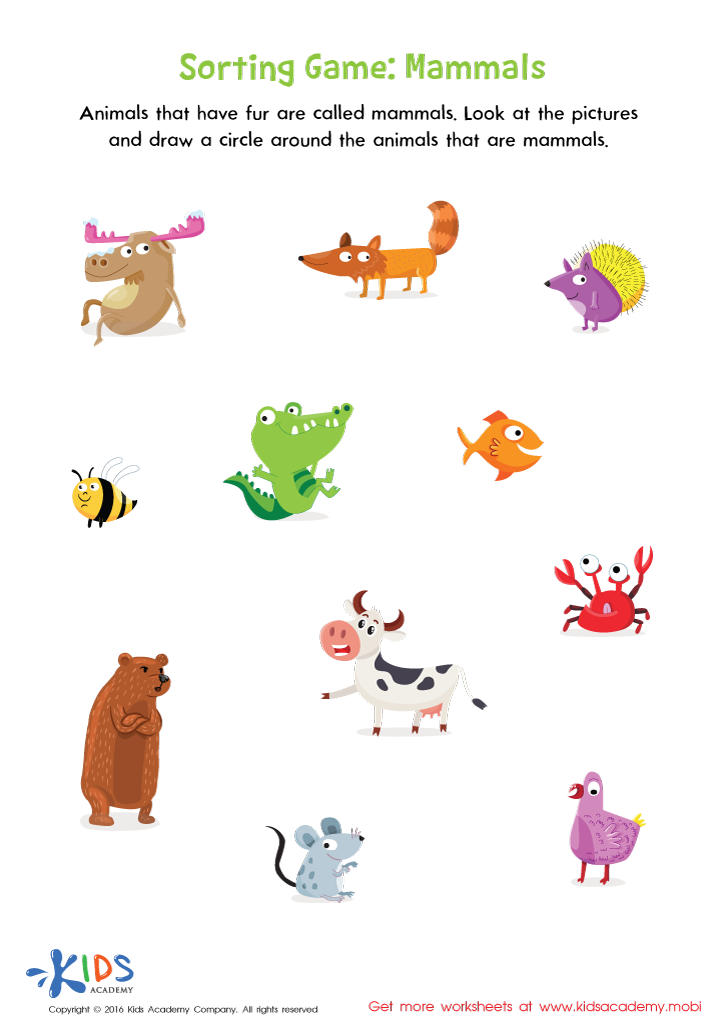

Mammals Sorting Worksheet
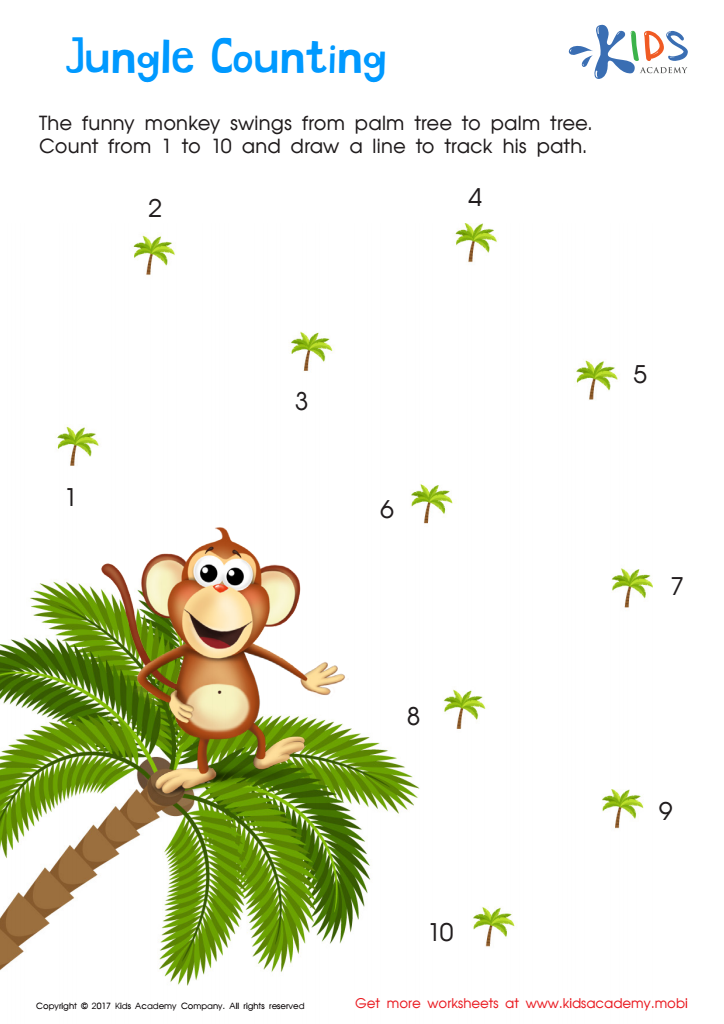

Jungle Counting Connect Dots Worksheet
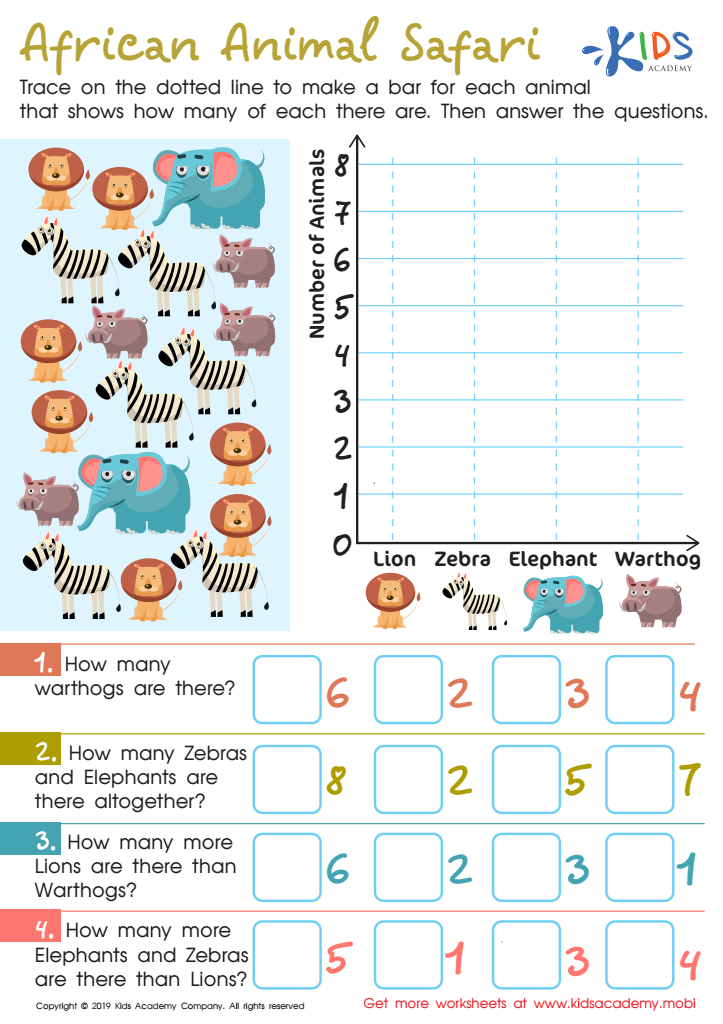

African Animal Safari Worksheet
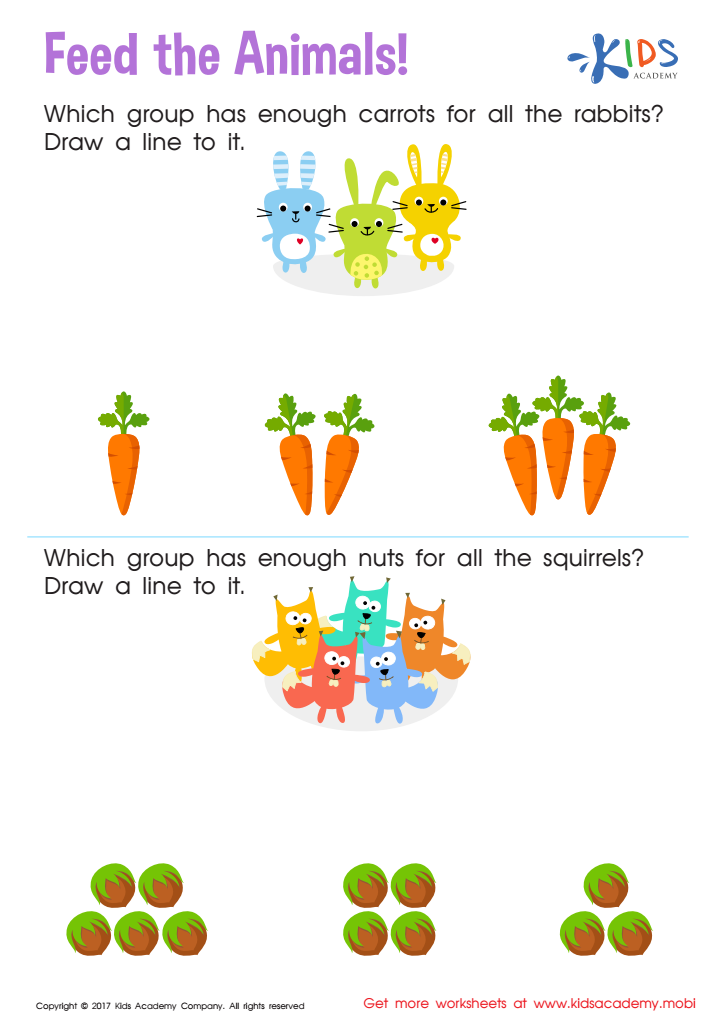

Count and Match: Feed the Animals Worksheet
Animal recognition is a fun and engaging way for young children to learn about the natural world, making it an essential focus for both parents and teachers. By introducing activities like the Animal Recognition Extra Challenge for ages 4-8, caregivers can foster children's curiosity about animals, which enhances their observational skills and critical thinking.
Engaging with animals encourages kids to explore their environment, promotes language development, and improves memory through interactive learning. Recognizing different animals and their habitats enhances children's knowledge of biodiversity, introducing them to essential concepts of conservation and ecological balance at an early age.
Additionally, animal recognition activities support social-emotional development. When children work together to identify animals, they build teamwork skills, confidence, and a sense of responsibility towards information sharing and caring for living creatures. They also learn about empathy—understanding that animals have specific needs and environments that we must respect.
Moreover, incorporating animal recognition into everyday learning leads to discussions about life cycles, food chains, and ecological roles, enriching STEM education. Therefore, parents and teachers should prioritize these challenges, savoring the moments when children explore, wonder, and learn in playful yet meaningful ways.
 Assign to My Students
Assign to My Students















